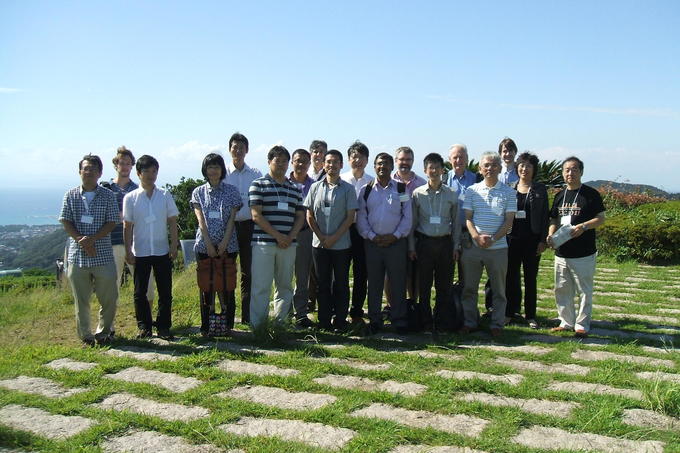NO.012 Knowledge-leveraged Computational Thinking through Natural Language Processing and Statistical Logic
September 19 - 21, 2011 (Check-in: September 18, 2011 )
Organizers
- Akihiro Yamamoto
- Kyoto University, Japan
- Kentaro Inui
- Tohoku University, Japan
- Sadao Kurohashi
- Kyoto University, Japan

Overview
A long-standing problem in Natural Language Processing has been a lack of large-scale knowledge for computers. The emergence of the Web and the rapid increase of information on the Web drastically changed the environment of NLP. The Web is not only a marvelous target for NLP, but also a valuable resource from which knowledge could be extracted for computers, making research and development activities on large-scale text processing and large-scale knowledge acquisition much more popular.
However, beyond the success of large-scale NLP and knowledge acquisition, we are starting to face a new problem: how to manage and use the automatically acquired knowledge. We are still not confident that automatically acquired large-scale knowledge resources will indeed solve NLP problems in real world applications How to incorporate the acquired knowledge into existing NLP frameworks and how to manage them are yet unsolved issues.
Based on this background, the workshop introduces the new research field of Computational Thinking, where computers themselves directly make use of the large-scale knowledge on the Web by combining natural language processing and statistical logical inference. In natural language processing, we need robust structuring of text, making advances in discourse analysis, zero pronoun resolution, and syntactic and semantic parsing. In addition, to handle the uncertainty and ambiguity inherent in language and in automatically acquired knowledge, we also have to construct a theory and system of inductive knowledge derivation, allowing us to carry out statistical inductive logic computation on a massive scale.
Based on these advances, we can develop a high-dimension statistical induction framework that finds links in the useful knowledge represented in language, and by doing so, construct a knowledge analysis engine that goes beyond mere search, effectively harnessing the entire Web knowledge space.
The aim of the workshop is to bring researchers and practitioners together in order to discuss Knowledge-leveraged Computational Thinking. Possible topics of the workshop include, but are not limited to:
– Construction of large corpora and sharable large resources
– Knowledge-leveraged robust structuring of text
– Bootstrapping knowledge acquisition from very large corpora
– Framework of very-large-scale statistical logic
– Inductive knowledge derivation and distillation
– Knowledge-based information access, analysis, and organization
